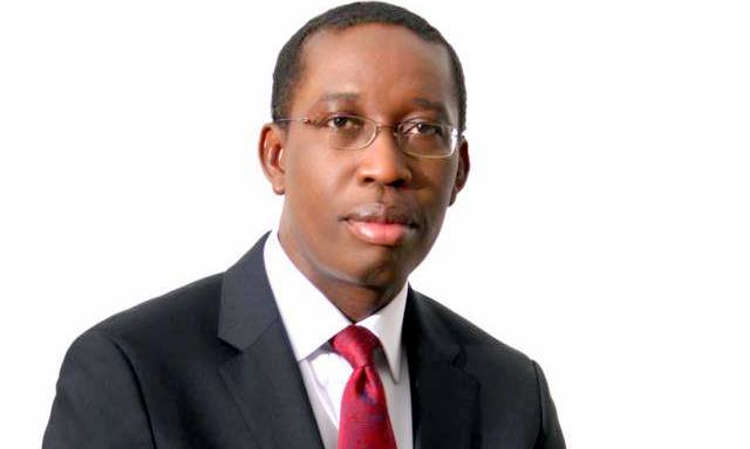Delta says public schools’ pupils shouldn’t pay fees
The Federal Government had in 1999 introduced the Universal Basic Education (UBE) programme to provide free primary and junior secondary education for all. Still, the cost of attending public schools varies by state such that while Ekiti and many other states have abolished school fees, pupils in other states pay fees to access schools. Many […]

Governor Ifeanyi Arthur Okowa of Delta State
The Federal Government had in 1999 introduced the Universal Basic Education (UBE) programme to provide free primary and junior secondary education for all. Still, the cost of attending public schools varies by state such that while Ekiti and many other states have abolished school fees, pupils in other states pay fees to access schools.
Many schools are said to turn away pupils who could not pay their fees. A case in point is the video of a 7-year-old primary 3 pupil of Okotie Eboh Primary School, Sapele, Delta State, sent away from school over exam fees, which went viral on the social media. The state authorities later said the levies imposed on pupils in the school were illegal and subsequently suspended the head teacher.
The Commissioner of Basic and Secondary Education, Chiedu Ebie said by virtue of the UBE Act, education at the basic level in the state was free and the provision was also extended to senior secondary level.
However, many stakeholders in the state have voiced out their observation on payment of school fees by pupils and the suspension of the head teacher.
But a parent in Warri, Akure Ovie said parents and guardians are to blame for any illegal levies imposed by teachers because they have the right to resist or report to the authorities.
“My child once told me of exam fees and when I got to the school, the head teacher denied asking for the fee. Even when my daughter pointed out the teacher, she denied it. Since then, they never troubled my daughter and I never paid any such money,” he said.
According to him, preliminary investigation proved that students in many schools paid exam fees last year and that there was no public school that hasn’t imposed illegal fees on students, which includes exam fees, enrollment fees and scratch card money to check results.
He said education could not be free in the state because pupils paid for sports and even school badge.
However, the vice chairman of the Nigeria Union of Journalists (NUJ) Delta State Council, Comrade Pat Ochei said the head teacher shouldn’t have been punished for the illegal school fees collection rather, the education authorities must be held accountable.
In the meantime, parents have continued to protest Common Entrance Examination fees charged by government for primary school pupils seeking admission to secondary schools.
Parents said pupils in various public schools were compelled to pay monies ranging from N7,000, N10,000 to N12,000 as registration fees for the entrance examination, while external pupils were made to register for as much as N17,000.
A parent in one of the primary schools in Asaba, the Delta State capital said, “After paying N10,000, I also paid N500 as lesson fees and N100 for consumables. I don’t know what they mean by consumables. I paid another N150 for test and they are now asking us to pay N400 for report card.
“Government says it offers free education in public schools, but what we are seeing now is a different thing.”
Daily Trust findings also revealed that some of the private schools that were yet to obtain approval as entrance exam centres, were collecting additional N7,000 from their pupils to enroll them into public schools, a sort of discreet arrangement reached between heads of schools, but which the education ministry may not be unaware of.
Commenting on illegal fees, the Commissioner for Basic and Secondary Schools, Mr Ebie, stated that a circular on fees and levies was issued in September 2018 to all basic and secondary schools across the state, listing government approved levies.
“The approved levy for the schools is N100 and N750 for sportswear per term. Beside these, government does not approve collection of examination fees or imposed books on students. But as you know in every system, there are people that are deviant.
“Any school head doing this is doing so in defiance of the government order and should be reported to the ministry for appropriate sanctions. We have sanctioned school heads and CIEs; some were demoted, others were withdrawn from urban to rural areas, while CIEs have been recalled from their duty posts,” Ebie revealed.
Ebie said Governor Ifeanyi Okowa’s administration has paid more attention to improving quality at 1,145 public primary schools, 465 secondary schools and six technical colleges. It has also established 46 primary and secondary schools across the state, especially in difficult terrains.
The commissioner stated that at inception, the administration organized an education summit and espoused an 18-point working plan for the education sector, pointing out that one issue that emerged from the summit was the establishment of a Teachers Professional Development Centre, which was currently about 70 percent completed; to improve the teacher’s professional delivery and impact.
Another line of action from the summit was the increase of access to vocational and technical education on which government came up with policies to attract students to the new technical colleges across the state.
The commissioner said government was making effort to recruit fresh teachers to reduce the shortfall of 3,000 teachers, but that prospective applicants must be prepared to serve in the rural and riverine areas.
